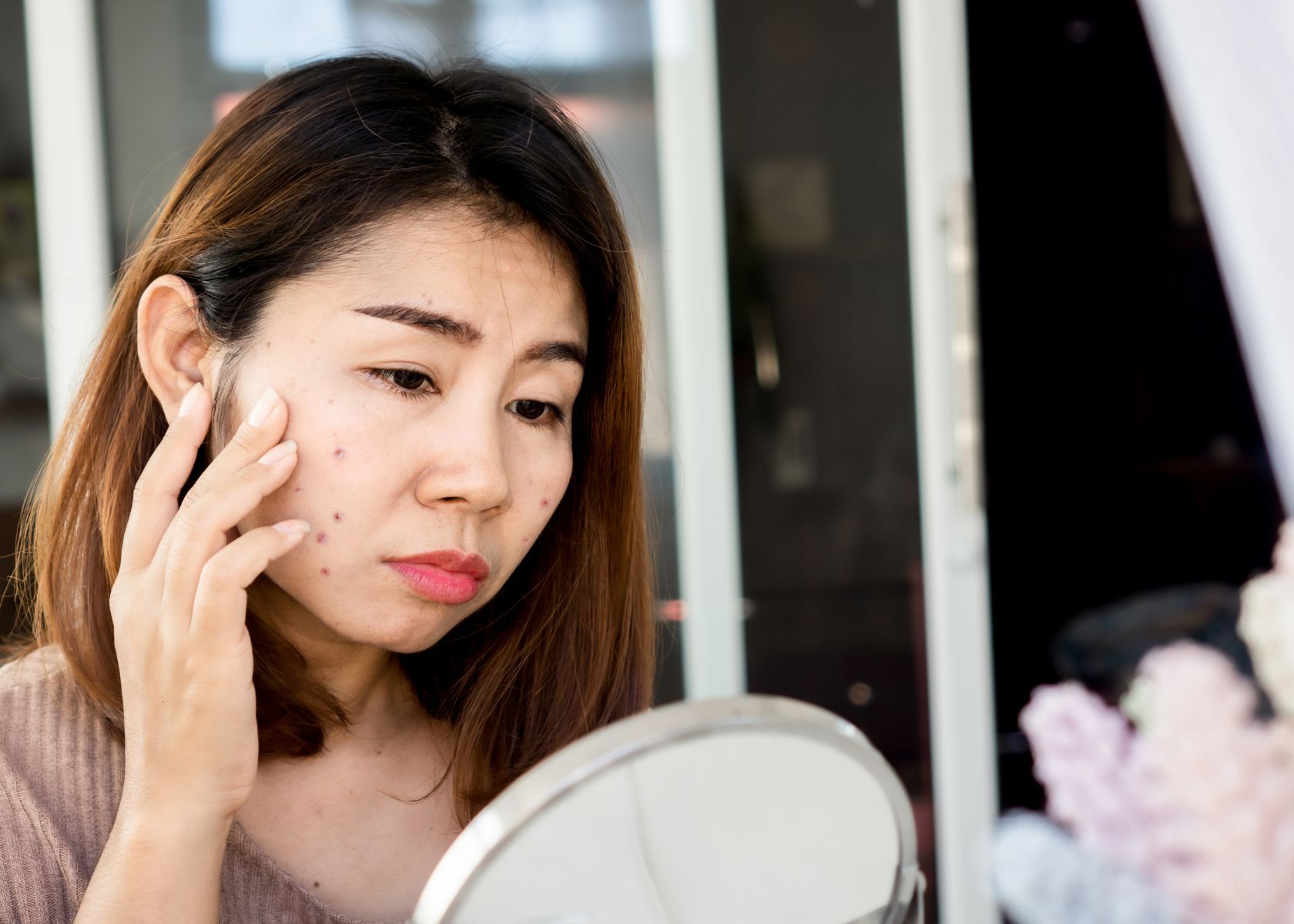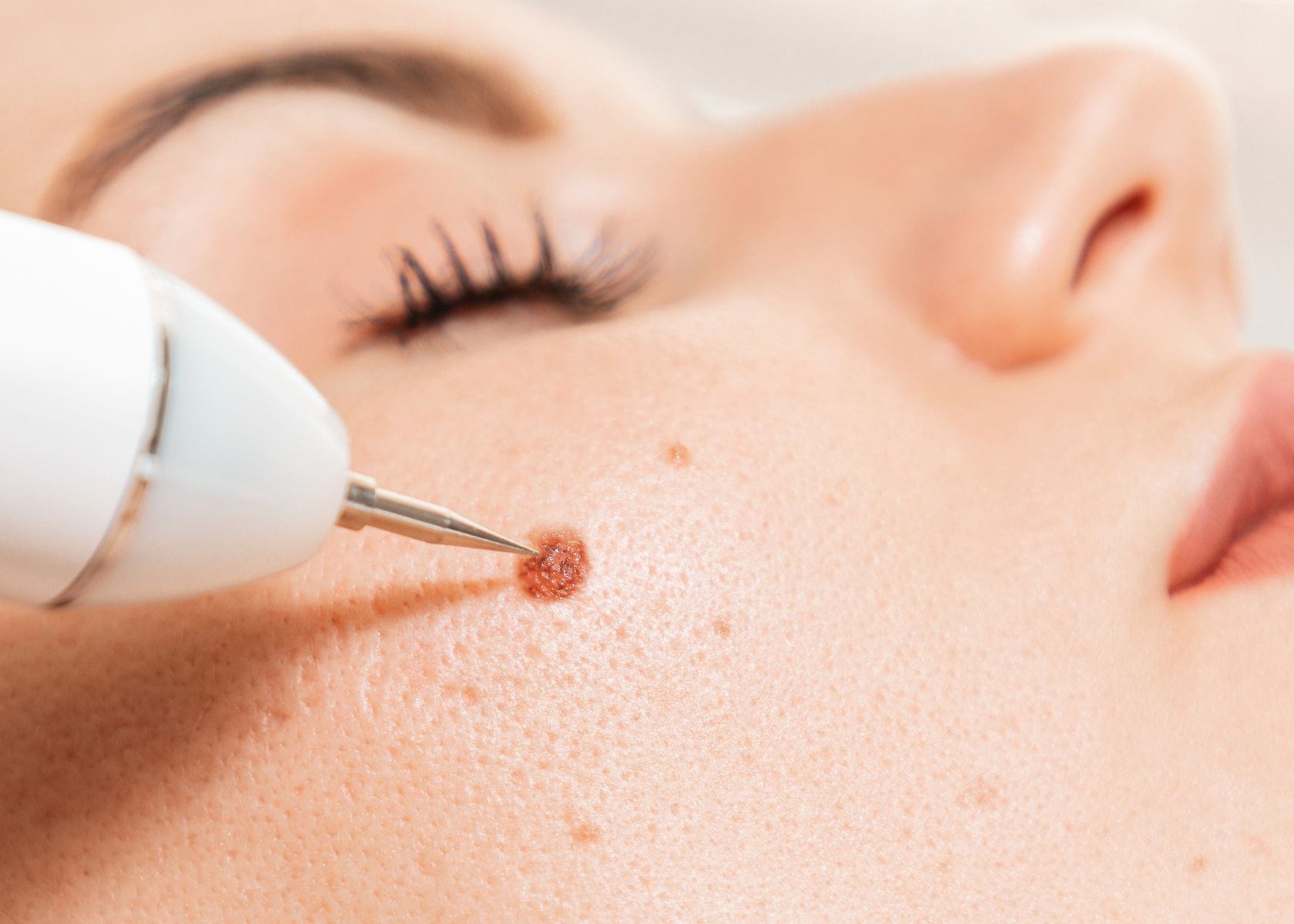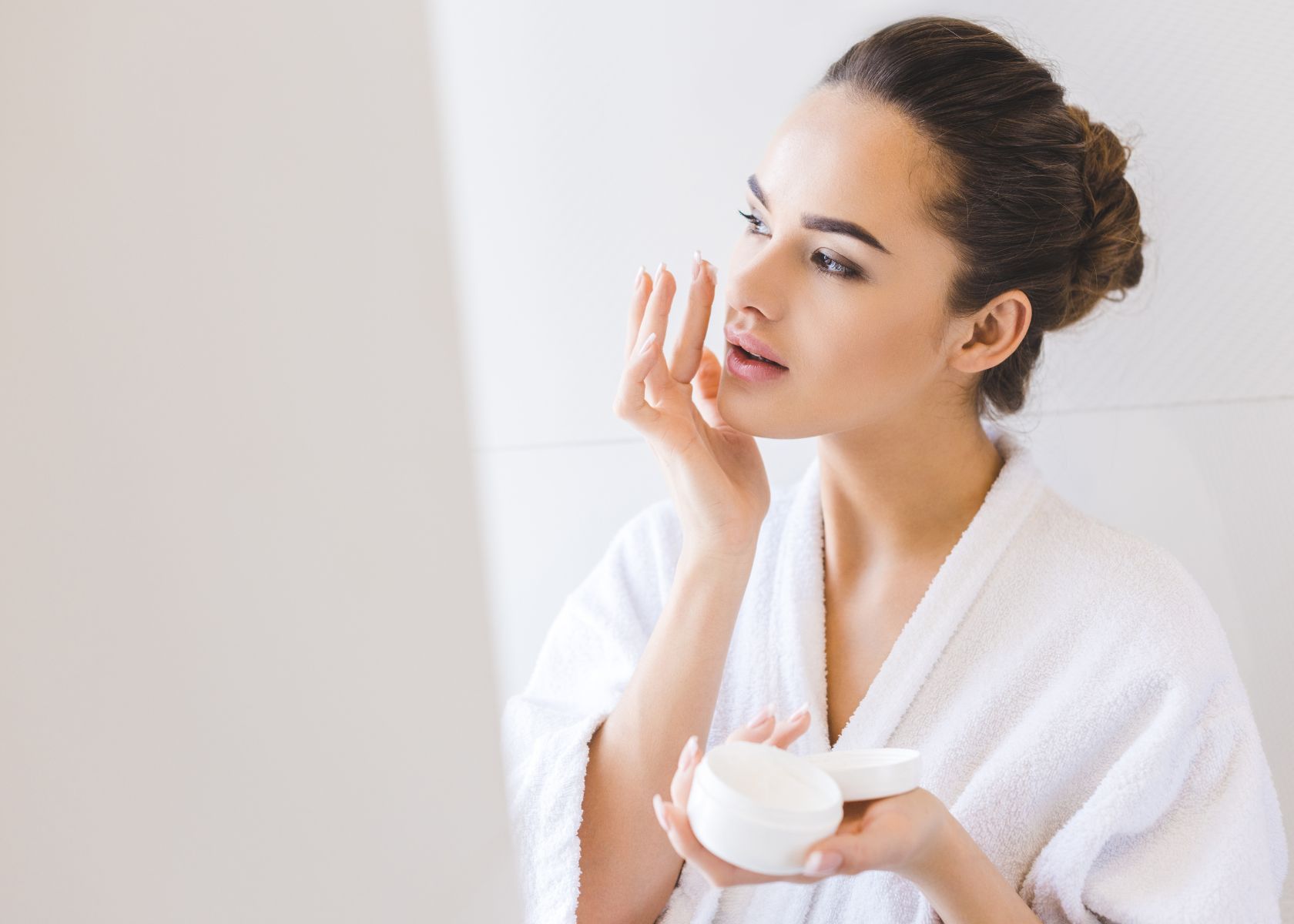Dealing with hyperpigmentation can feel like an uphill battle. It's a skin condition that causes darkened patches due to excess melanin production. But how do you stop hyperpigmentation from getting worse?
In this article, we will provide you with key strategies and treatments to stop hyperpigmentation from getting worse.
Ready for clearer, even-toned skin? Read on.
Causes of Hyperpigmentation

Hyperpigmentation can be caused by inflammation, sun exposure, melasma, and certain medical conditions or medications.
Inflammation
Inflammation often triggers hyperpigmentation. Various factors, such as acne, injuries, or skin infections, can cause inflammation. This leads to an increase in melanin production in your skin, resulting in darker patches or spots.
It's important to treat any underlying inflammatory skin condition as soon as possible. Skin irritation and inflammation can be minimized by using gentle skincare products and avoiding harsh physical exfoliants and chemicals that could potentially damage the skin further.
Regular soothing treatments like cold compresses may also reduce inflammatory responses on your facial skin.
Sun Exposure
Sun exposure is one of the leading causes of skin pigmentation. When the skin is exposed to UV rays from the sun, it triggers an increase in melanin production, resulting in dark patches or spots on the skin.
Excess sun exposure can worsen existing pigmentation and lead to further discoloration. To prevent hyperpigmentation from getting worse, it is crucial to protect your skin from the harmful effects of the sun.
Use sunscreen with a high SPF every day, even when it's cloudy outside. Additionally, wearing protective clothing such as hats and sunglasses can provide an extra layer of defense against UV rays.
Remember that consistent sun protection practices are essential for maintaining an even and healthy skin tone.
Properly protecting your skin from sun exposure not only helps prevent hyperpigmentation but also reduces the risk of other sun-related damage like wrinkles and skin cancer.
So make sure you incorporate sunscreen into your daily skincare routine and take additional measures to shield yourself from harmful UV radiation whenever you're out in the sunshine. It is essential for natural skin tone and to prevent darker skin tones.
Melasma
Melasma is a common type of hyperpigmentation that affects many people, especially women. It causes brown or grayish patches to appear on the face, particularly on the cheeks, forehead, and upper lip.
The exact cause of melasma is not fully understood, but hormonal changes, sun exposure, and genetics are believed to play a role. Women who are pregnant or taking hormonal medications like birth control pills are more prone to developing melasma.
To prevent melasma from worsening, it's crucial to protect your skin from the sun by wearing sunscreen with a high SPF every day and seeking shade when necessary.
Medical Conditions or Medication
Certain medical conditions or medications can contribute to the development or worsening of hyperpigmentation. Conditions such as hormonal imbalances, thyroid disorders, and autoimmune diseases can affect the production of melanin in the skin, leading to uneven pigmentation.
Additionally, certain medications like hormone replacement therapy (HRT) or birth control pills may also trigger hyperpigmentation as a side effect.
It is important for individuals with these conditions or taking these medications to be aware of how they might impact their skin and take necessary precautions to protect against further darkening of the skin.
Prevention of Hyperpigmentation

To prevent hyperpigmentation, it is important to keep your skin moisturized, avoid picking at skin injuries, and protect your skin from sun exposure. Read more to discover other prevention methods and treatment options for hyperpigmentation.
Keep Skin Moisturized
Moisturizing the skin is an essential step in preventing hyperpigmentation from worsening. Dry and dehydrated skin can make pigmentation appear more prominent, so keeping the skin moisturized is crucial.
By providing hydration to the skin, moisturizers help maintain its barrier function and prevent water loss, which can exacerbate hyperpigmentation. Look for moisturizers that are non-comedogenic and suitable for your skin type to avoid clogging pores or causing further irritation.
Additionally, opt for products with ingredients like hyaluronic acid or ceramides that aid in retaining moisture. Regularly applying a moisturizer can contribute to healthier-looking skin and reduce the risk of hyperpigmentation becoming more pronounced over time.
By maintaining proper skin hydration through regular use of a good-quality moisturizer, you not only promote overall skin health but also create an environment less conducive to hyperpigmentation development.
Avoid Picking at Skin Injuries
Picking at skin injuries can worsen hyperpigmentation. When you pick at a scab or acne breakout, it prolongs the healing process and increases the risk of post-inflammatory hyperpigmentation.
The act of picking disrupts the normal healing process and can lead to further inflammation and trauma to the skin, which in turn triggers melanin production. This can result in dark spots and patches on the affected area, making the hyperpigmentation more prominent.
To prevent the worsening of hyperpigmentation, it is important to resist the urge to pick at any skin injuries, including pimples, cuts, or scabs. Instead, allow them to heal naturally and protect them with gentle skincare products such as moisturizers or bandages if necessary.
Use OTC Whitening Options
OTC whitening options can be an effective way to reduce hyperpigmentation and even out skin tone. These products are readily available at drugstores and typically contain ingredients like hydroquinone, kojic acid, or vitamin C, which help to lighten dark spots and fade pigmentation.
It's important to follow the instructions on the packaging and use these products consistently for the best results. Incorporating OTC whitening options into your skincare routine can be a convenient and affordable way to address hyperpigmentation without requiring a prescription or professional treatment.
Consider Prescription Treatments
Prescription treatments can be an effective option for addressing hyperpigmentation. Dermatologists may prescribe topical creams or medications containing ingredients like retinol or niacinamide to help fade dark spots and even out the skin tone.
These prescription treatments work by inhibiting melanin production and promoting cell turnover, helping to reduce the appearance of hyperpigmentation over time. It's important to follow your dermatologist's instructions and use these treatments consistently for best results.
Consulting with a healthcare professional will help determine which prescription options are the most suitable for your specific condition and skin type.
Protect Skin from Sun Exposure
To prevent hyperpigmentation from worsening, it is crucial to shield your skin from sun exposure. UV rays can trigger the production of more melanin, leading to darker patches and uneven skin tone.
Make sure to apply sunscreen with a high SPF every day, even on cloudy days or during the winter months. It is the best way to treat hyperpigmentation. Additionally, wear protective clothing such as wide-brimmed hats and long-sleeved shirts when spending time outdoors.
This will help minimize the effects of harmful UV rays and reduce the risk of further hyperpigmentation. Remember, prevention is key to maintaining healthy and even-toned skin.
Explore High-Tech Options With A Dermatologist
Dermatologists are experts in treating hyperpigmentation and can offer high-tech options to help fade dark patches and even out skin tone. Through advanced treatments such as laser therapy, chemical peels, and microdermabrasion, dermatologists can effectively reduce the appearance of darker skin and dark skin tones.
Laser therapy targets specific areas of excess melanin production, while chemical peels remove layers of damaged skin to reveal fresher, more evenly toned skin. Microdermabrasion exfoliates the top layer of skin, stimulating new cell growth and promoting a smoother complexion.
By consulting with a dermatologist, you can explore these cutting-edge options tailored to your needs for clearer and brighter skin.
Remember that professional treatments should always be done under the guidance of a dermatologist for best results. With their expertise and access to high-tech solutions, they can provide personalized recommendations based on your specific type of hyperpigmentation.
Treatment Options for Hyperpigmentation

Topical creams, cosmetic procedures, and home remedies such as aloe vera, licorice, and green tea can be effective treatment options for hyperpigmentation.
Topical Creams
Topical creams are a popular treatment option for hyperpigmentation. These creams work by targeting the excess melanin production in the skin, helping to fade dark patches and even out skin tone.
One common ingredient in these creams is retinol, which helps to promote cell turnover and reduce the appearance of hyperpigmentation over time. Another effective ingredient is niacinamide, which can help to brighten the complexion and minimize dark spots.
When using topical creams, it's important to follow the instructions carefully and be consistent with the application. Over time, these creams can help reduce the appearance of existing hyperpigmentation and prevent it from getting worse.
Cosmetic Procedures
Cosmetic procedures can be effective in treating hyperpigmentation and achieving a more even skin tone. These procedures are usually done by dermatologists or cosmetic surgeons and can help fade dark spots, sun spots, and other forms of hyperpigmentation.
One option is laser therapy, which uses concentrated beams of light to target the pigmented areas of the skin and break up the excess melanin. Another option is chemical peels, which involve applying a solution to the skin that causes it to peel off, revealing fresh skin underneath.
Microdermabrasion is another procedure that involves gently exfoliating the top layer of skin to reduce pigmentation.
Dermatologists may also recommend dermabrasion or retinoids for more severe cases of hyperpigmentation. Dermabrasion involves removing the top layers of skin using a rotating brush or diamond wheel, while retinoids are vitamin A derivatives that can help promote cell turnover and fade pigmentation over time.
Home Remedies (Aloe Vera, Licorice, Green Tea)
Home remedies can be effective in reducing the appearance of hyperpigmentation. Some options to try are:
- Apply aloe vera gel directly to the affected areas. It helps to generate new skin cells.
- Use licorice extract or cream, which has been shown to have skin-lightening properties.
- Green tea can be used topically as a toner or mask to help fade dark spots.
How to Reduce the Appearance of Existing Hyperpigmentation?

To reduce the appearance of existing hyperpigmentation, use a Vitamin C + AHA24 day gel face cream daily.
Use Vitamin C + AHA24 Day Gel Face Cream
Using a Vitamin C + AHA24 day gel face cream can be an effective way to reduce the appearance of existing hyperpigmentation. The combination of Vitamin C and AHA (alpha hydroxy acid) in this product helps to brighten the skin and fade dark spots.
Vitamin C is known for its ability to inhibit melanin production, while AHAs exfoliate the skin, promoting cell turnover and revealing a more even complexion. Applying this gel cream daily can help improve skin tone and reduce the visibility of dark patches caused by hyperpigmentation.
Effective Skincare Routine for Hyperpigmentation
Maintaining a consistent skincare routine is essential for reducing the appearance of hyperpigmentation. Follow these steps to effectively care for your skin:
- Cleanse your face twice a day with a gentle cleanser to remove any dirt, oil, and makeup.
- Use an exfoliating scrub or toner containing AHAs or BHAs to help remove dead skin cells and promote cell turnover.
- Apply a serum with active ingredients like retinol or niacinamide, which can help fade pigmentation and even out skin tone.
- Moisturize your skin daily with a lightweight, non-comedogenic moisturizer to keep it hydrated and prevent dryness.
- Don't forget to apply sunscreen with at least SPF 30 every day, even on cloudy days, to protect your skin from harmful UV rays.
- Consider incorporating face masks or treatments specifically designed to target hyperpigmentation into your routine once or twice a week.
- Stay consistent with your skincare routine and give it time to work – results may take several weeks or months.
Removal and Reduction of Sun Spots
To remove and reduce sun spots, there are various treatment options available. One effective approach is the use of topical creams or serums containing ingredients like retinol and niacinamide, which can help fade pigmentation over time.
Cosmetic procedures such as chemical peels and laser therapy can also be utilized to target dark spots and promote skin rejuvenation. Additionally, incorporating face acids like alpha-hydroxy acids (AHAs) into your skincare routine can exfoliate the skin and improve its overall appearance.
By combining these treatments with consistent sun protection measures, you can effectively minimize the visibility of sunspots and achieve a more even skin tone.
Reducing Fine Lines and Wrinkles Under the Eyes
To reduce the appearance of fine lines and wrinkles under the eyes, there are several effective options to consider. One option is to use skincare products that contain ingredients like retinol, which helps promote collagen production and smooth out the skin.
Another option is to incorporate a targeted skincare routine for under-eye concerns, including gentle cleansing, hydration, and specific eye creams or serums. Additionally, professional treatments such as dermal fillers or laser therapy can help minimize the appearance of fine lines and wrinkles in this area.
These treatments work by stimulating collagen production and improving skin elasticity.
Frequently Asked Questions
Hyperpigmentation is a common skin condition where patches of skin become darker than the normal surrounding skin. It can occur for various reasons, like sun exposure, hormonal changes, or inflammation. Once present, hyperpigmentation can often seem to spread or darken over time if left untreated.
The good news is there are steps you can take to stop hyperpigmentation from worsening and improve its appearance. In these FAQs, we’ll walk through the most effective ways to prevent hyperpigmentation from becoming more pronounced.
What is hyperpigmentation, and how can I stop it from getting worse?
Hyperpigmentation is a common skin discoloration condition that can worsen with sun exposure. To prevent this, apply dermatologist-recommended products and follow an effective skincare routine to combat hyperpigmentation.
Are there any at-home treatments for managing hyperpigmentation?
Yes, natural remedies and lifestyle changes such as retinol treatment or niacinamide can reduce hyperpigmentation at home.
How effective are chemical peels in treating hyperpigmentation?
Chemical peel therapy, one of the popular treatments for hyperpigmentation, removes the top layer of your skin to reveal smoother, more evenly pigmented skin beneath.
Can lifestyle changes help in reducing my chances of getting more skin discoloration?
Absolutely! Avoiding common triggers for sun-induced pigmentation, like excessive sunlight exposure, and following skincare routines are lifestyle adjustments that mitigate further skin discoloration.
How do I choose the right product to treat my discolored patches?
Understanding different types of disorders will be key when choosing between various dermatologist-recommended products intended for managing your specific type of hyperpigmentation.
Conclusion
To stop hyperpigmentation from getting worse, take steps to protect your skin from the sun and avoid triggers that can cause inflammation. Use skincare products and treatments that are designed to even out your skin tone and fade pigmentation.
With consistency and the right approach, you can prevent hyperpigmentation from worsening and achieve a more balanced complexion.



